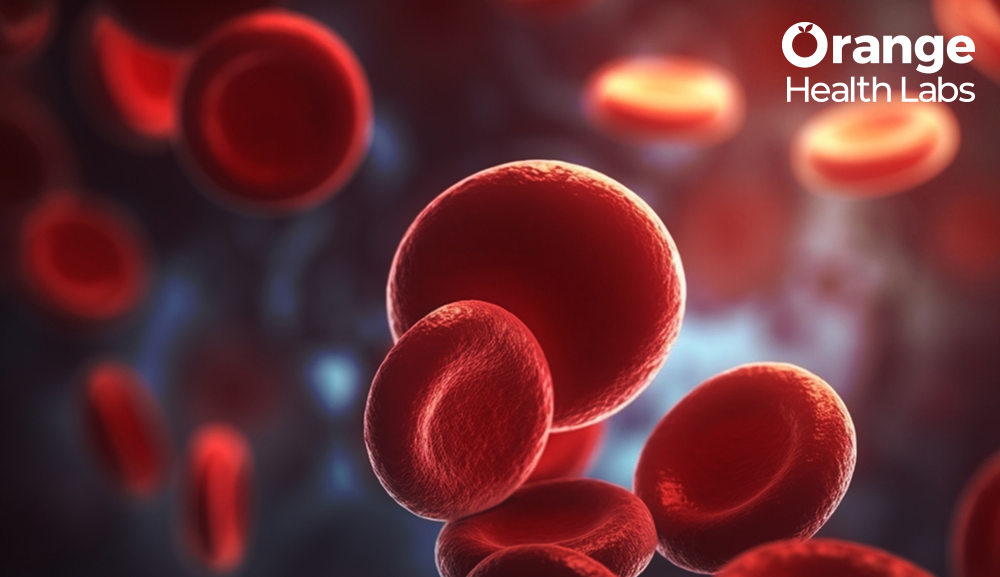Search for tests or checkups
SupportMaximizing Egg Freezing Success with AMH Testing
Many women may want to delay starting a family due to career goals, health concerns, or finding the right partner. Egg freezing offers them the flexibility to preserve fertility for the future, especially if they’re expecting to undergo treatments like chemotherapy or have conditions such as severe endometriosis. Understanding your fertility health is crucial, and the anti-Müllerian hormone (AMH) test plays a key role in it. It helps determine the best time to freeze your eggs and whether it’s the right option for you.
Let’s see how AMH test supports your journey through egg freezing and why it's an important step to consider.
What Is AMH Testing?
The AMH test is used to measure the level of anti-Müllerian hormone in your blood. This hormone is produced by cells in the ovarian follicles, which are the small sacs in the ovaries that contain eggs. While AMH is present in both men and women, it’s primarily used to assess reproductive health and egg count in women. Higher AMH levels suggest a greater number of eggs and a better ovarian reserve, while lower levels indicate fewer eggs.
Egg Freezing and the Role of AMH Testing
Egg freezing, or oocyte cryopreservation, is a way to store a woman’s eggs for future use. The process begins with testing for diseases like HIV and hepatitis. Then, an IVF cycle starts, usually lasting two to three weeks. During this time, medications help the ovaries produce eggs. Once ready, the eggs are collected under anesthesia, frozen quickly using a method called vitrification, and stored in liquid nitrogen.
AMH testing is crucial in optimizing this process. It helps estimate how many eggs a woman might produce by measuring AMH levels, which reflect the egg reserve in the ovaries. High AMH levels suggest a larger egg supply, while low levels indicate fewer eggs. This information guides the timing and planning of egg freezing. Additionally, AMH levels help predict how fertility might change over time, allowing for better scheduling of the procedure and informed decisions about when to start egg freezing for the best results.
Understanding Your AMH Results
The levels of this hormone rise during adolescence, peak around age 25, and then decrease with age. Here’s what AMH levels generally mean:
- Normal: 1.0 to 3.0 ng/mL
- Low: Less than 1.0 ng/mL
- Very Low: 0.4 ng/mL or lower
Typical AMH levels by age are:
- 25 years old: About 3.0 ng/mL
- 30 years old: About 2.5 ng/mL
- 35 years old: About 1.5 ng/mL
- 40 years old: About 1.0 ng/mL
- 45 years old: About 0.5 ng/mL
High AMH levels usually indicate a good number of eggs, allowing more time for egg freezing. Low AMH levels suggest a lower egg count, which may make earlier egg freezing a better option. High AMH levels may also be associated with polycystic ovary syndrome. Low AMH levels could indicate approaching menopause. In women under 40 with menopausal symptoms, very low AMH levels may suggest primary ovarian insufficiency, in which the ovaries produce fewer or no eggs.
Understanding AMH levels helps in planning the right time for egg freezing and making informed decisions about fertility.
AMH and Timing Your Egg Freezing: Maximizing Success
AMH plays a key role in optimizing egg freezing. Here’s how it works:
- Assessing Egg Reserve: AMH levels indicate the number of eggs left in the ovaries, helping to determine the best time to start egg freezing.
- Customized Treatment Plan: AMH levels guide doctors in adjusting medications to maximize the number of eggs retrieved and reduce risks like ovarian hyperstimulation syndrome.
- Precise Timing: AMH testing helps schedule egg retrieval at the ideal time, enhancing the chances of successful freezing.
By using AMH level testing, you get a personalized and effective approach to egg freezing, thus improving your chances of a successful outcome. You have the option to have your AMH test done at a hospital or laboratory or choose an AMH test at home to better plan and maximize the success of your egg-freezing journey.
Also, book AMH Test in your City: AMH Test in Mumbai | AMH Test in Hyderabad | AMH Test in Bangalore | AMH Test in Noida | AMH Test in Gurgaon
Beyond AMH: Other Factors to Consider in Egg Freezing
While the AMH test is crucial for assessing your egg supply, several other factors also play a significant role in the egg-freezing process.
Antral Follicle Count (AFC)
This ultrasound-based test measures the number of small follicles in your ovaries. A higher AFC indicates a greater number of eggs available for retrieval. This count helps estimate how many eggs can be collected in one cycle, which is essential for planning the egg-freezing procedure.
Follicle-Stimulating Hormone (FSH) Levels
This hormone stimulates follicle growth. Elevated FSH levels may signal a reduced egg reserve, potentially affecting the success of egg retrieval. Monitoring FSH levels provides insight into ovarian function and helps tailor your treatment plan.
Oestradiol (E2) Levels
Oestradiol is a hormone that can suppress FSH. Checking E2 levels alongside FSH ensures accurate readings of ovarian function. It helps avoid misinterpretations of FSH levels and provides a clearer picture of your reproductive health.
Infectious Disease Testing
Before egg freezing, testing for infectious diseases is required to ensure that no infections interfere with the success of the procedure. This step is crucial for safeguarding both your health and the integrity of the egg-freezing process. These tests, along with AMH levels, give a clear view of your egg supply and reproductive health. They help determine the best time and method for egg freezing, ensuring smart choices about preserving your fertility.
Conclusion
AMH testing is essential for effective egg freezing. It shows the egg reserve in the ovaries, helping doctors decide the best time for retrieval. This can improve the success rate of the egg-freezing procedure. You can have your AMH test done at home, in a laboratory, or at a hospital. The AMH test cost may vary by location, but it is a smart investment in planning the future of your fertility.

Understanding Mean Corpuscular Haemoglobin Concentration: A Key Indicator of Blood Health

What does your blood test reveal about your sleep?
